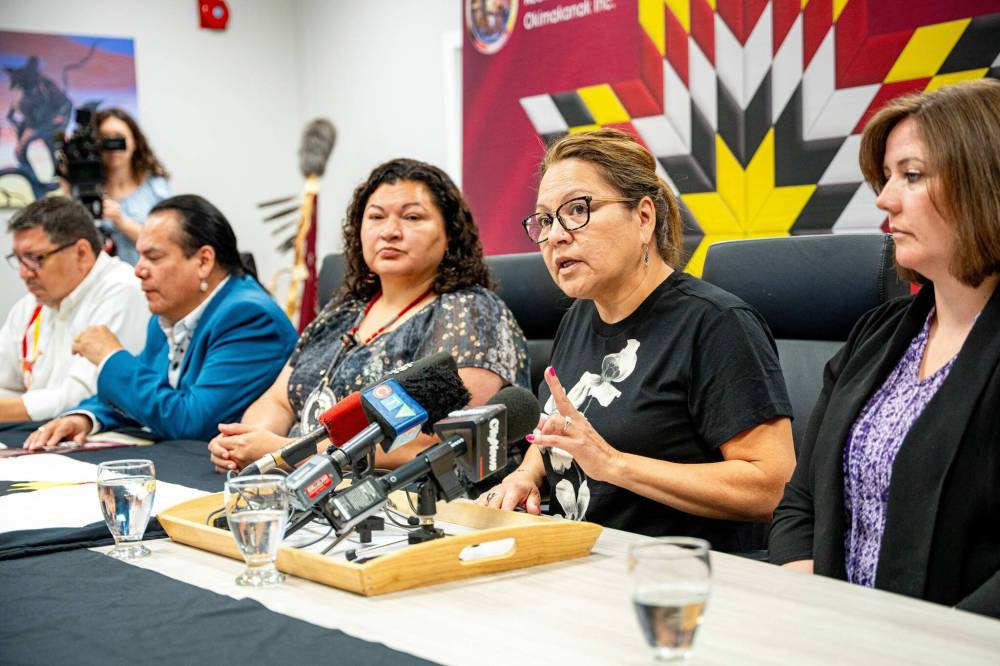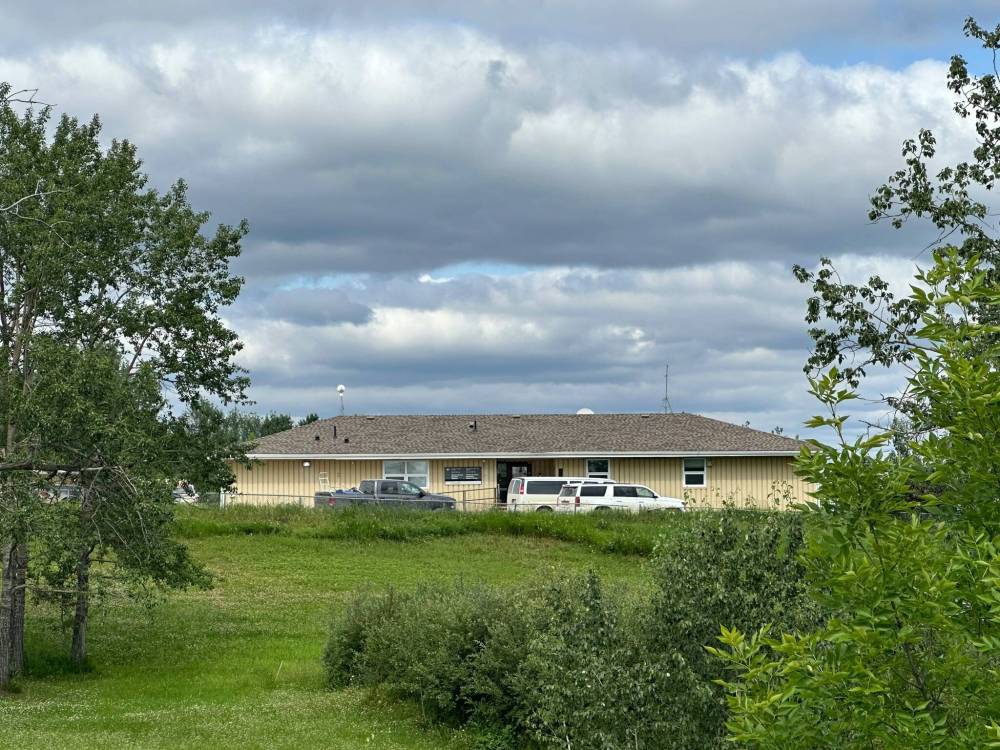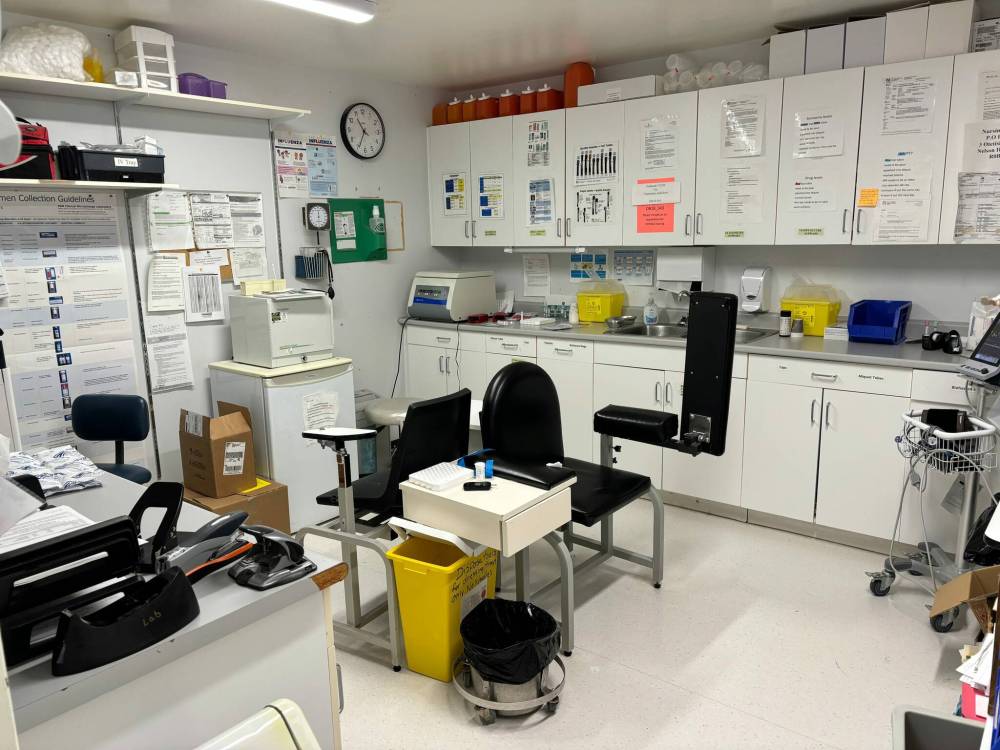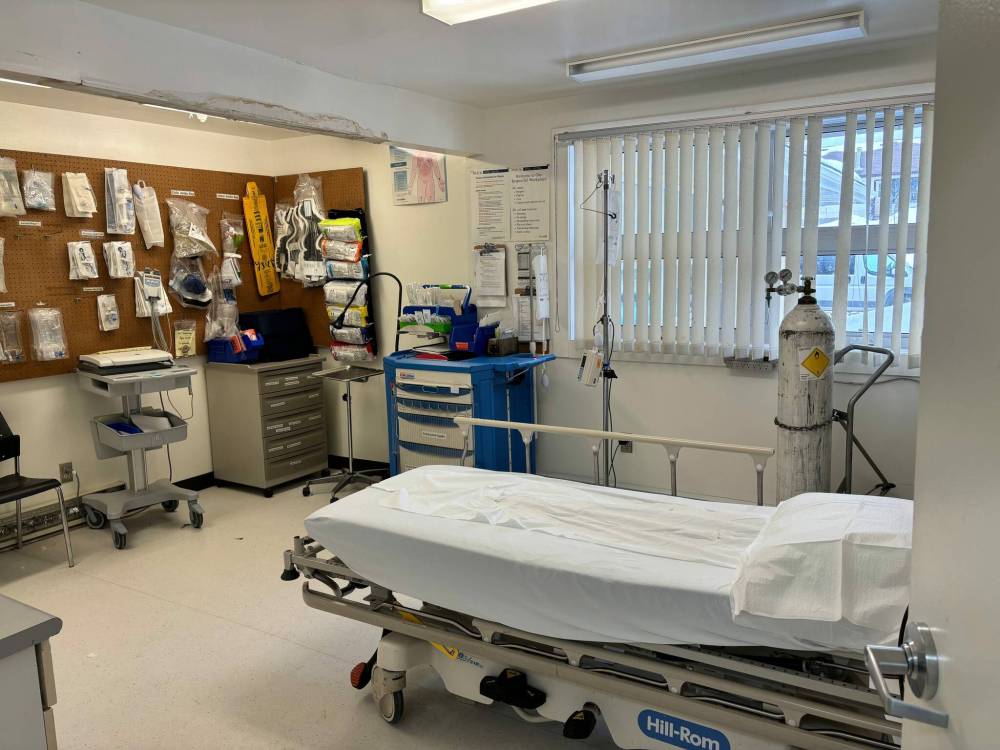‘Our people have a right to health care’
Another First Nation declares emergency over nursing shortage
Advertisement
Read this article for free:
or
Already have an account? Log in here »
To continue reading, please subscribe:
Monthly Digital Subscription
$0 for the first 4 weeks*
- Enjoy unlimited reading on winnipegfreepress.com
- Read the E-Edition, our digital replica newspaper
- Access News Break, our award-winning app
- Play interactive puzzles
*No charge for 4 weeks then price increases to the regular rate of $19.00 plus GST every four weeks. Offer available to new and qualified returning subscribers only. Cancel any time.
Monthly Digital Subscription
$4.75/week*
- Enjoy unlimited reading on winnipegfreepress.com
- Read the E-Edition, our digital replica newspaper
- Access News Break, our award-winning app
- Play interactive puzzles
*Billed as $19 plus GST every four weeks. Cancel any time.
To continue reading, please subscribe:
Add Free Press access to your Brandon Sun subscription for only an additional
$1 for the first 4 weeks*
*Your next subscription payment will increase by $1.00 and you will be charged $16.99 plus GST for four weeks. After four weeks, your payment will increase to $23.99 plus GST every four weeks.
Read unlimited articles for free today:
or
Already have an account? Log in here »
Hey there, time traveller!
This article was published 22/07/2024 (511 days ago), so information in it may no longer be current.
Another northern First Nations community has declared a state of emergency over a shortage of nurses.
Nisichawayasihk Cree Nation, based in Nelson House, said Monday it had no choice but to close its nursing station except for emergencies.
Chief Angela Levasseur said the nursing shortage is in a “crisis state” and blamed “insufficient and inadequate funding.”

NIC ADAM / FREE PRESS
Nisichawayasihk Cree Nation’s Director of Health, Lynda Wright, speaks at a press conference about Nisichawayasihk Cree Nation’s Nursing Shortage that forced a Health Care State of Emergency to be called at the MKO Office Monday morning.
“We cannot continue with the current state of affairs. Our people have a right to health care,” Levasseur said during a news conference organized by First Nations advocacy group Manitoba Keewatinowi Okimakanak in Winnipeg. “Our people have a right to attend the nursing station and be seen by a nurse.”
The chief said a lack of publicly funded nurses, a series of violent incidents and nursing agencies providing higher wages has led to understaffing, demoralized workers and the closure of the nursing station.
“There’s a lot of machete incidents that happen in the community … like other First Nations,” Levasseur said. “Everyone is at their breaking point … something has got to give.”
Nisichawayasihk Cree Nation is about 800 kilometres north of Winnipeg and 80 kilometres west of Thompson, has a population of 3,500 with another 2,500 people living off reserve.
The closure began last year around August, Levasseur said.
She told the Free Press violent attacks involving machetes and bear mace, fuelled by poverty and substance abuse, have been on the rise. She noted several machete attacks in recent weeks, including one to a man’s head that required 48 staples.
The two or three Indigenous Services Canada nurses working in the community are faced with managing traumas with scarce resources, while others in the community needing health care are turned away, the chief said.

SUPPLIED
Nisichawayasihk Cree Nation nursing station
The violent episodes and limited resources aren’t unique to Nisichawayasihk. The majority of First Nations communities are in similar positions, with the north hit especially hard, Levasseur said.
Pimicikamak Cree Nation Chief David Monias said his community has five or six of the 13 nurses he said the First Nation is supposed to have to adequately provide care to 8,000 people. Pimicikamak, also known as Cross Lake, declared a state of emergency in March, citing a nursing shortage.
“We cannot accept a broken system,” he said at the news conference, urging the federal government to “step up.”
Calling the media event a ‘cry from our nations,’ MKO Grand Chief Garrison Settee also noted the problem is nothing new.
“The system has been broken for a long time, and nobody wants to step up and fix it,” he said.
Government data shows nursing stations in remote First Nations communities in Manitoba were facing a 67 per cent operational vacancy in the last fiscal year.

SUPPLIED
Nisichawayasihk Cree Nation nursing station
In addition to calling on Ottawa to better fund nursing positions, Settee said communities should have funding to implement local nurse-training programs.
Levasseur went a step further, saying her community also needs funding for security initiatives to keep nurses safe, and to transport people to Thompson, about an hour away, where they’re having to go to access care.
Northern Affairs Minister Dan Vandal did not immediately respond to a request for comment.
Manitoba Nurses Union president Darlene Jackson said better federal wages for nurses working in northern First Nations communities would help retain staff.
But there’s more to it than money, she added.
“It’s very challenging work and a very special type of person needs to do that work,” Jackson said.

SUPPLIED
Nisichawayasihk Cree Nation nursing station
“We’re in a critical nursing shortage in this province, and across this country, and we are definitely having to look at new ways of trying to recruit and retain nurses,” she said.
“Unfortunately, the more remote you are, the bigger the issue becomes.”
jordan.snobelen@freepress.mb.ca
History
Updated on Monday, July 22, 2024 2:34 PM CDT: Adds comments from more chiefs; adds byline
Updated on Monday, July 22, 2024 6:56 PM CDT: Adds photos and updates to story.
Updated on Tuesday, July 23, 2024 10:48 AM CDT: Adds web headline





